New arrivals in Portugal will be happy to know that not only does the country have beautiful sights and delicious food, but it also has an affordable and accessible healthcare system. Indeed, according to a 2019 World Health Organization report, the Portuguese have the 12th best healthcare system in the world.
But despite this, if you’ve recently arrived in the country it can be tricky to know how to go about actually finding and seeing a doctor in Portugal. Fear not. We break down everything you need to know, including:
- Doctors in Portugal
- Who can access doctors in Portugal?
- Finding a doctor in Portugal
- Registering with a doctor in Portugal
- Making an appointment with doctors in Portugal
- Medical specialists in Portugal
- Cost of doctors and specialists in Portugal
- Health insurance in Portugal
- Private doctors and specialists in Portugal
- Doctor prescriptions in Portugal
- Medical tests in Portugal
- Emergency doctors in Portugal
- Making a complaint about doctors or specialists in Portugal
- Useful Portugal medical phrases
- Useful resources
Cigna Global
Want access to the best private medical services in Portugal? Speak to the healthcare professionals at Cigna Global today and find a policy that’s right for you. Take advantage of their global network of doctors, specialists, therapists and more with coverage tailor-made for you and your family. If you’re starting a new life in Portugal, get peace of mind with Cigna Global.
Doctors in Portugal
Let’s start with the basics. Healthcare in Portugal is split into three coexisting systems. These are the tax-funded National Health Service (Serviço Nacional de Saúde, or SNS), special social programs of health insurance for certain professions, and private health insurance.
Public healthcare is given through health centers and hospitals in towns and cities across the country. The public SNS system includes all medical care, apart from dentistry. In addition to the public system, private health services are widely available in Portugal. However, you will typically need private medical insurance to access these services.
Additionally, some health centers and hospitals operate under the public-private partnership model (PPP). Health centers and hospitals operating under the PPP, such as Hospital de Cascais Dr. José de Almeida (in Portuguese), will provide you with special treatment usually only found in the private sector at the same cost as in a public health facility. It might be useful to seek one out in case you are looking for a specific medical specialist, but are unable to afford private insurance.
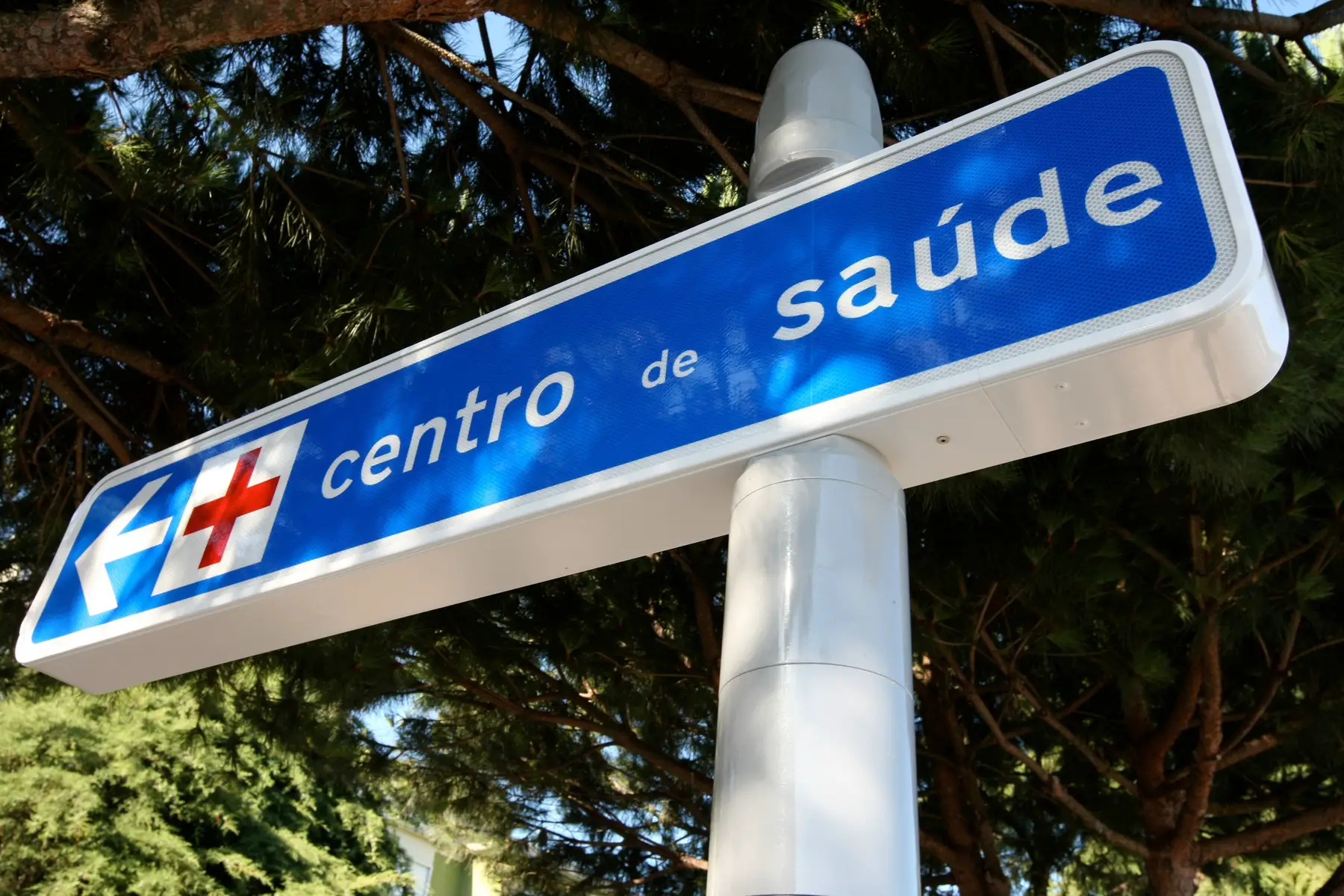
According to a 2019 European Commission survey, there are roughly 29,481 practicing doctors in mainland Portugal, covering a wide variety of specializations and disciplines. Furthermore, there are many physicians in Portugal’s autonomous island regions of Madeira and the Azores. These doctors work across the country’s 200 hospitals. They also work in health centers, clinics, and pharmacies.
Typically, these health centers in Portugal are open from 08:00 to 20:00. However, since the start of the COVID-19 pandemic there has been a delay in in-person consultations. Therefore, many health centers are now open (in Portuguese) until 22:00 on weekdays and from 10:00 to 14:00 on Saturdays. Be sure to check ahead with the clinic.
If you face an emergency after-hours, you can walk into any hospital or call an ambulance by dialing 112 at any time of day or night.
Who can access doctors in Portugal?
If you live in Portugal, you may be entitled to see a doctor through the public healthcare system, SNS. However, whether you qualify for it depends on your residency status and nationality. Be sure to find out what you are entitled to when sorting out your immigration to Portugal.
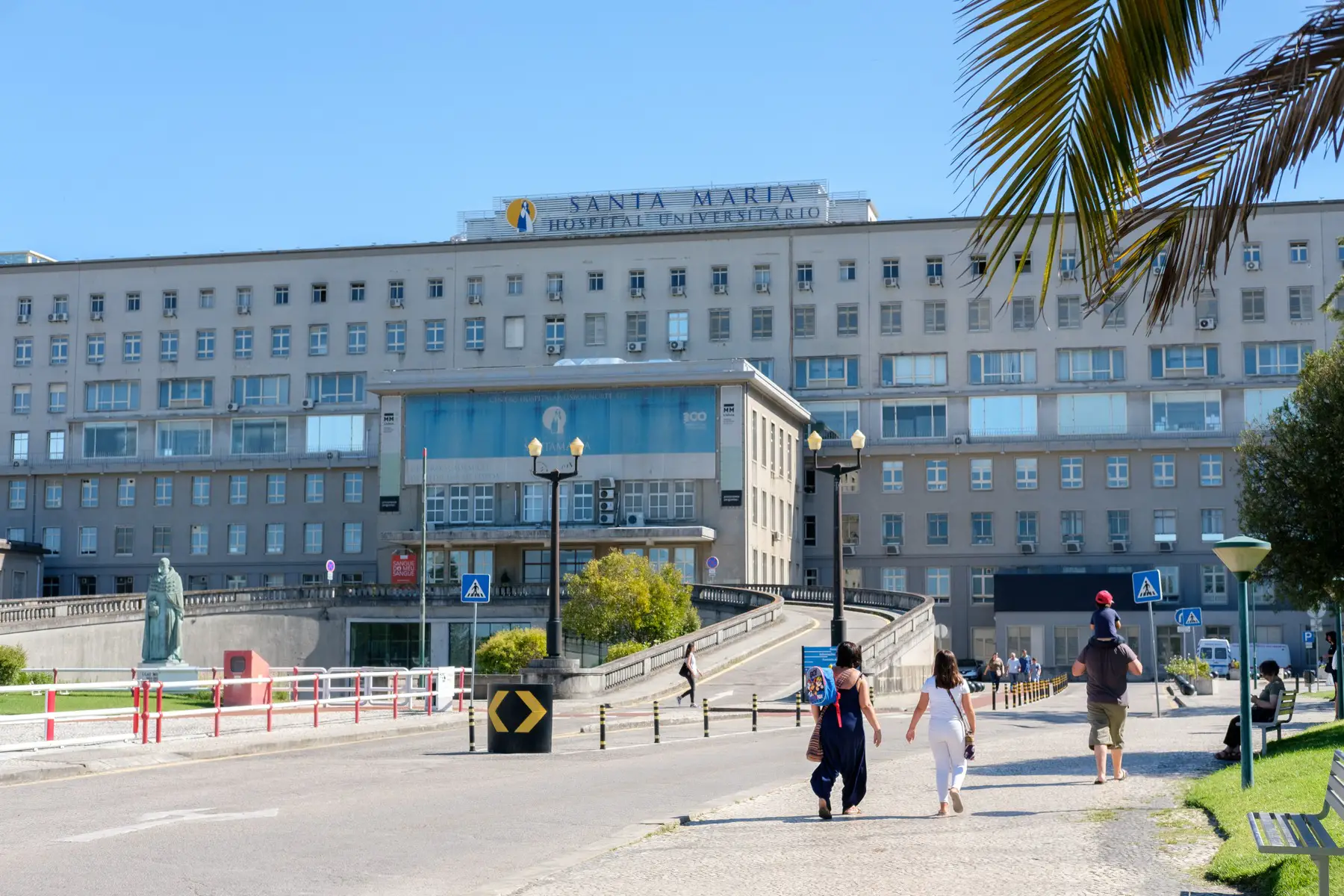
If you are a citizen of an EU/EEA country with a valid European Health Insurance Card (EHIC), you can use the public healthcare system in Portugal as you would the healthcare system in your own country for 90 days. There is no need to register. However, after this 90-day period, you will need to register with the SNS to maintain access.
If you are not an EU/EEA citizen, or you don’t have an EHIC, you will probably need to consider private health insurance before even landing in the country. Should your circumstances change, you can always register with the SNS later to make the most of Portugal’s public healthcare system.
Finding a doctor in Portugal
Once you’ve registered, you need to think about where you can find a doctor in Portugal. If you’re in the public system, you can start by looking into the SNS database (in Portuguese). Alternatively, search for a private doctor on the website of the Portuguese Association of Private Hospitalization (APHP) (In Portuguese).
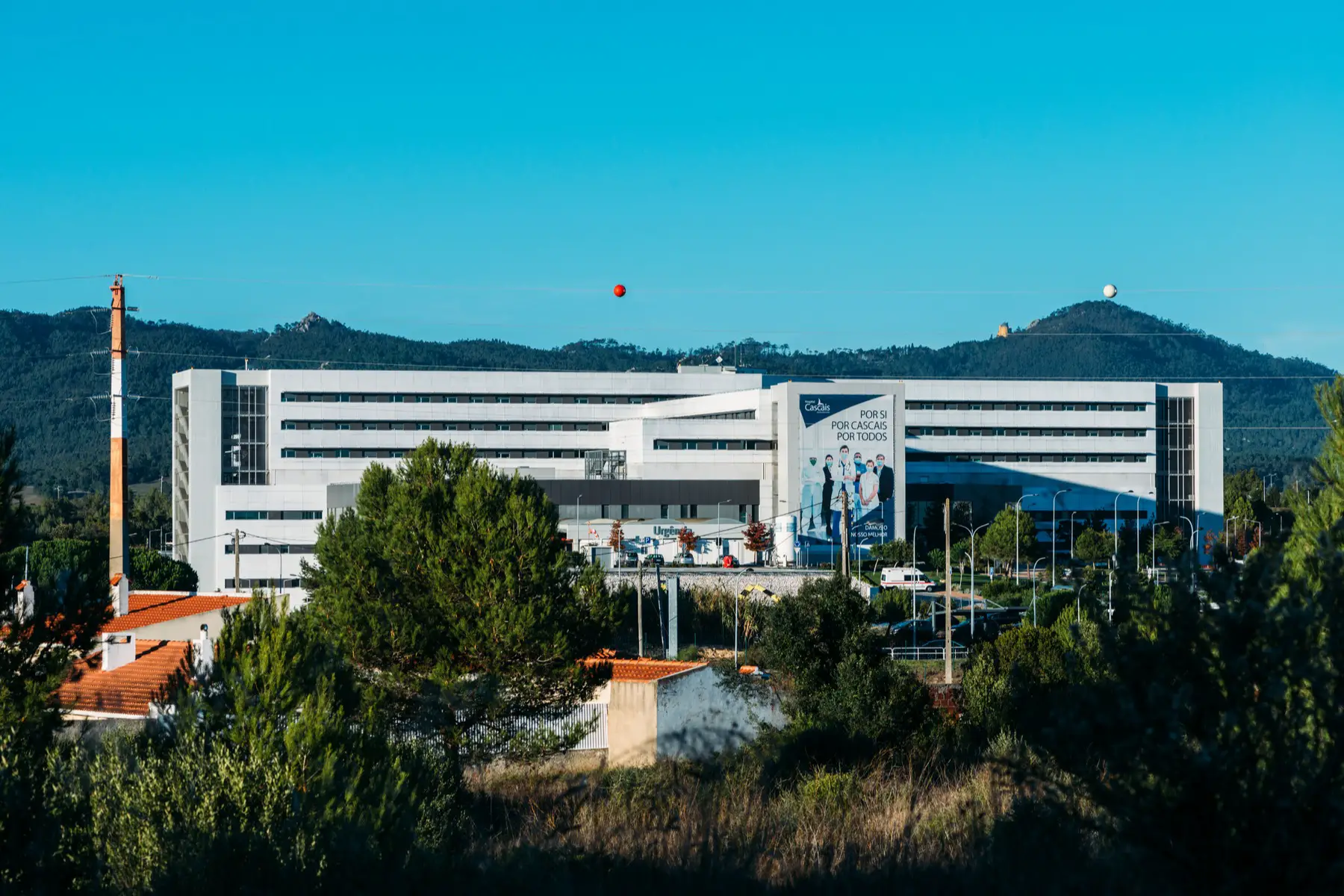
If you get lost in translation, there are other options. For example, the American and British embassies provide English lists of different kinds of doctors in the country. Furthermore, Tripmedic made a guide on how to find a doctor fluent in any language in Lisbon.
Finding English-speaking doctors in Portugal
Although most doctors in Portugal will have some understanding of English, your may struggle to find one with whom you can converse fluently. This is particularly true if you live in a remote part of the country. Indeed, you may need to travel a little if you are searching for an English-speaking doctor.
However, it’s unlikely your doctor will not understand any English. And, of course, you can help the process by brushing up on your Portuguese ahead of your appointment. Some hospital chains, such as CUF (in Portuguese), let you skip the trouble and select a doctor based on your language.
Registering with a doctor in Portugal
The first thing you need to register with a doctor in Portugal is your numero de identificação fiscal, or NIF. This is basically a tax identification number and you’ll need it to do pretty much anything in Portugal. Indeed, applying for a NIF is likely to be one of the things you do during your first week in Portugal.
Once you have your NIF, you can get an SNS user number. Request it at your local health center by presenting your NIF and a residence permit.

Once you have received your SNS number, you can finally access public healthcare in Portugal. Firstly, you’ll probably want to register with a family doctor, or médico de família. You may be assigned one, or you may be able to pick your own. The only requirement is that they operate in a health facility in your area.
This is, of course, if you want to see a doctor via the SNS. If you want to see a doctor through the private sector, you will need to register with private health insurance. This is not mandatory, but some expats chose to do this to avoid the long waiting lists and queues associated with the public health sector in Portugal.
Private health insurance is widely available in Portugal, both from international and local insurance companies. If you already have an international plan, you will likely find your coverage includes Portugal. Otherwise, you can register online or in-person with a private health insurer while in Portugal.
Making an appointment with doctors in Portugal
You can typically make an appointment with an SNS doctor in Portugal in person, over the phone, or online. This is also true of any private doctors or physicians, should you have private health insurance.
Whenever making a doctor’s appointment you should always have your NIF ready. If you’re seeing a public doctor, keep your SNS number handy, too. Bring along your wallet as well, since you may have to pay a small fee –usually under €5. This cost will be higher in a private facility.
No time to make an appointment? You can typically just walk straight into most health facilities in Portugal and wait. However, be aware that you might need to wait around a while. Depending on local COVID restrictions, some facilities may also not allow patients to do this. However, this isn’t the case if you require urgent care.
Deleted:
In addition to traditional ways of booking, telehealth platforms offer online appointments with medical professionals. Sites such as Mobi Doctor provide video and phone healthcare appointments and prescription services.
What to expect when visiting a doctor in Portugal
Unfortunately, public health facilities in Portugal are often overburdened and understaffed. Although this has improved significantly over the last decade, it usually means long waiting lists and queues.
So, if you’re seeing a doctor through the SNS, make sure to bring a juicy book along, because you may need to wait for anything up to four hours. Even if you have an appointment, you might end up at the bottom of a list. Because of this, some people prefer to take out private health insurance, for a breezier doctor’s visit. However, you will have to pay for it.
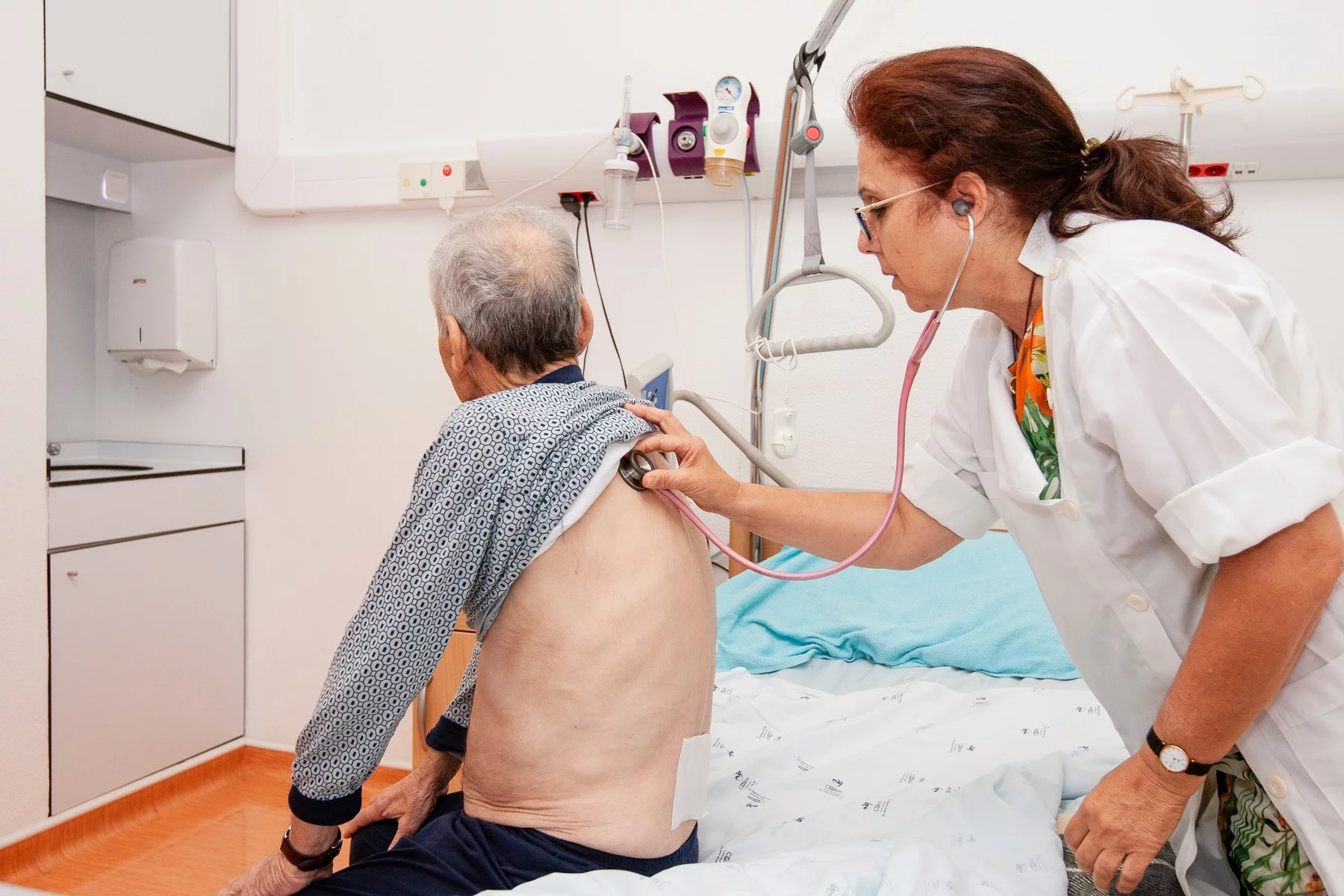
When you are called in for your consultation, your doctor will probably ask you a few questions about your situation and run some tests. Depending on your condition and situation, they may or may not refer you to a specialist.
Your doctor may also prescribe you medicine. You can pick it up later at a pharmacy (farmácia). If you’re covered by the SNS, you can pay for the medicine under the public healthcare system. They can also book you in for a blood or urine test. This is usually done at a later date and partly covered by the SNS.
Finally, in Portugal, you don’t necessarily need to go to the doctor’s office. Some doctors can come to you instead, as home consultations are available from many health centers. They are typically more expensive, though. Alternatively, following the COVID-19 pandemic, some clinics may offer video consultations. Check online to see if this is available in your locality.
Medical specialists in Portugal
There is a wide range of operating medical specialists in public and private health facilities in Portugal. For example, there are 7,000 active dentists in the country.
If you need to see a specialist (dermatologist, cardiologist, gynecologist, etc.), you can get a referral from your doctor. This will ensure the fees are covered by the SNS.
In Portugal, the public entity that licenses and regulates all medical practitioners is the Order of Physicians (in Portuguese) (Ordem dos Médicos). It is also responsible for the standards of training for all postgraduate medical students, and it attributes clinicians with a specialist degree.
If you need special medical treatment in Portugal, such as surgery, you may need to wait a while. In the best-case scenario, you will wait for weeks. In the worst, it could be years. If you’re in a hurry to see a specialist, you’re probably better off going to a private hospital or health center.
Finding a specialist in Portugal
Usually, your family doctor will be the one to refer you to a specialist, but you can also book your own. You can find information about different specialists working in public healthcare facilities on the SNS website (in Portuguese).

For more information on the kind of specialist care available in each private hospital in Portugal, you can look into the website of the Portuguese Association of Private Hospitalization (APHP) (in Portuguese).
Visiting a specialist in Portugal
Visiting a specialist in Portugal is not very different from visiting your family doctor. You will also need to bring your NIF and your SNS number, both of which you must present upon arrival.
If you’re seeing a medical specialist without a referral, you can either make an appointment or use a walk-in service, should one be available. In this case, it may be useful to call in first to ask whether that specialist is in or available that day. However, you may need to (you guessed it) wait.
Cost of doctors and specialists in Portugal
If you’re registered with the SNS and you’re seeing a public doctor, you pay only a small consultation fee. This is also known as a taxa moderadora (in Portuguese). However, small children, retired people, or those on low income can get free healthcare.
The most important fees for you to know are the cost of a consultation with your family doctor (€4.50), a consultation with a specialist (€7.50), and an overnight stay at the hospital (€25). The fees for private care are higher, but they can be partially or fully covered by private health insurance.
When it comes to dental care in Portugal, you will likely have to pay out of pocket. Despite this, it is still less expensive to see a dentist in Portugal than in other European countries. You can also take out dental coverage as part of your private health insurance package in Portugal.
Health insurance in Portugal
One of the most important decisions you’ll make as an expat in Portugal is your choice of healthcare system. This is a choice between whether to be covered by the public SNS system or take out private health insurance.
Although public healthcare in Portugal is affordable and accessible, it does come with its setbacks. Indeed, seeing a doctor through the SNS can mean long waiting lists and queues. Conversely, private medical coverage will typically mean you access treatment quicker and have more options when it comes to care.

Most health insurance plans offer a fixed amount to spend on private medical treatment. If you surpass that amount, you might be asked to co-pay your expenses. However, you can typically choose a policy that covers more of your needs ahead of time, such as dentistry or vision care, to avoid any high bills.
Health insurance companies operating in Portugal include:
For more information, read our guide to health insurance in Portugal.
Private doctors and specialists in Portugal
Don’t care for overnight queues and long waiting lists? You’re not the only one. Perhaps because of the flaws in the SNS, private health insurance has become popular in Portugal, with 31.3% of locals choosing to take some kind of private coverage.
Besides having faster access to doctors, specialists, and treatment, you also have more of a say in what doctor you want to see, and where. The only downside to private medical treatment, is, of course, the cost, which is higher than what you would pay in the public system.
For example, while you will be asked to pay a fee of under €5 to see a doctor through the public system. However, with a private doctor you will pay at least €40 for your visit. These costs can be partially or fully covered by your private health insurance, though.
Doctor prescriptions in Portugal
Generally speaking, your doctor in Portugal will have no problem prescribing you medicine. Once you have your doctor’s scribble with you, you can head directly to a farmácia and pick up your prescription medicine.
The cost of medicine in Portugal is split into different categories, with grades depending on subsidization, ranging from Grade A (90%) to Grade D (15%). You can browse for the price of any pharmacy medicine in Portugal on the Infarmed website (in Portuguese).
Pharmacies are open from Monday to Friday, from 09:00 to 19:00, and on Saturday, from 09:00 to 13:00. They also take turns being on-duty at late hours or on Sunday afternoons. The SNS website has a map of all the pharmacies in Portugal (in Portuguese).
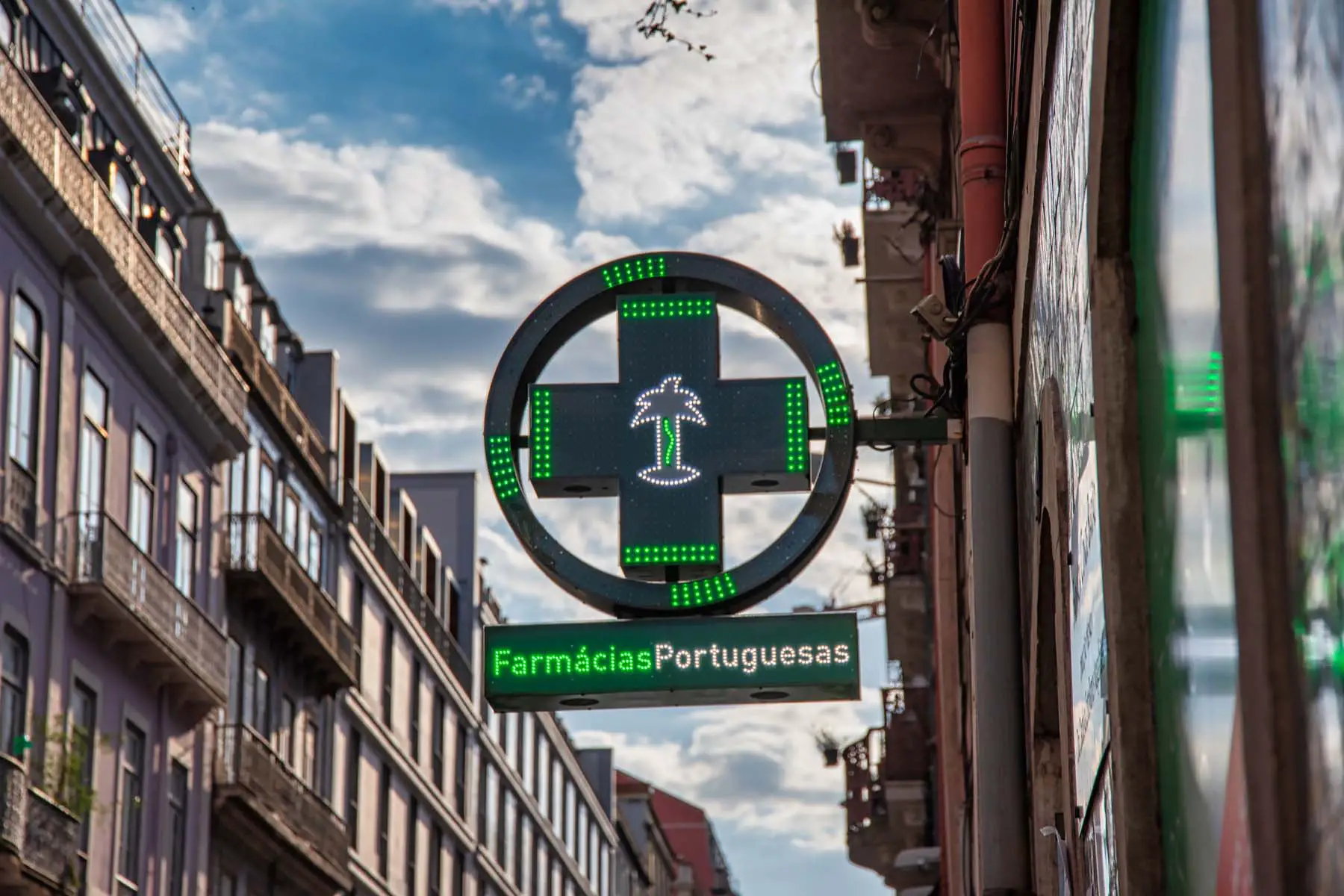
Did you know that pharmacies in Portugal sell certain medications over-the-counter that are typically prescription-only in other countries? For instance, in order to buy an inhaler in the United Kingdom, you would need a doctor’s prescription. However, in Portugal, you can just get one at your local pharmacy. Controversially (in Portuguese), certain antibiotics are also available in Portuguese pharmacies – even without a doctor’s notice. Still, you should always follow your doctor’s orders first.
Medical tests in Portugal
There are two ways to get a medical test in Portugal. You can either get referred by your family doctor or you can visit a test facility directly. You can also get a lot done in your local pharmacy, too. For example, you’ll be able to purchase blood and urine testing kits – namely, for diabetes.
Of course, for more complex testing, you should go to the doctor or the clinic. Your médico de família may recommend some routine medical tests – especially if you suffer from any pre-existing condition or have any diseases in your family history.
You can do medical tests through private testing companies (análises clínicas) as well. They usually have an agreement with the SNS, which means you will need to pay a fee similar to the one you would in a public health facility (under the €5 mark).
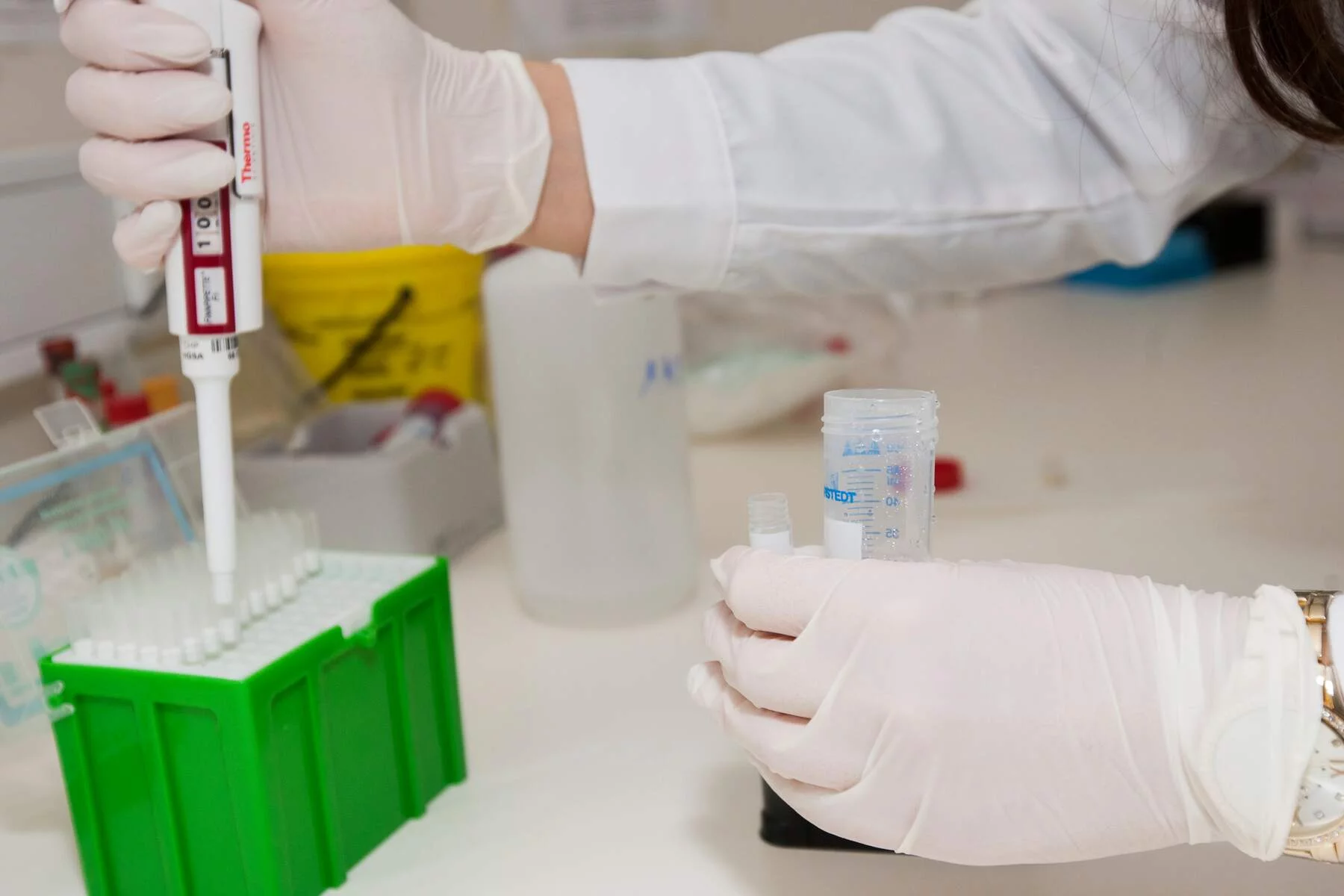
Joaquim Chaves Saúde (in Portuguese) and Germano de Sousa (in Portuguese) are the most popular testing facilities in Portugal, but if you do a quick Google search you will find a handful near you.
Once your medical test results arrive, you can access them directly. You can always contact your médico de família to ask questions about the results, in case you don’t understand them – which is only natural if you’re not a medical specialist.
Emergency doctors in Portugal
Everyone in Portugal – resident, expat, or tourist – can get emergency treatment at any time of the day or night. However, costs will vary depending on your situation.
If you are registered with the SNS and go to a public hospital, your medical fees and stay will be mostly paid for. If you have private health insurance, the costs will depend on your plan. Wherever you’re staying, once your condition stabilizes, you will need to show proof of residency or insurance in order to determine your fees.
In any health emergency in Portugal, you should immediately call the emergency number (122) and explain the situation as best as you can to the operator. The operator will probably speak at least some English, but they are not likely to be native speakers, so make sure to talk slowly and clearly. They may ask you a few questions and then send over an ambulance as quickly as possible. Then, you or the patient may be assisted in the ambulance, or taken to the emergency ward in the hospital if necessary.

For general, non-urgent medical advice, you can also refer to the Health Line 24 Saúde 24) at 0808 24 24 24, which is available twenty-four hours a day.
Making a complaint about doctors or specialists in Portugal
A majority of Portuguese people are satisfied with the quality of healthcare in Portugal, especially in the wake of the country’s response to the COVID-19 pandemic (in Portuguese). However, you might still run into issues with your doctor. In that case, you can file a complaint. There are different levels of medical complaints in Portugal, and your procedure should be different for each.
If you were faced with a doctor that was not the best, you should ask for the health facility’s complaint book (Livro de Reclamações) and file your grievances there. They will be later passed on to a superior. You can also file your complaint online on the Health Regulating Entity (Entidade Reguladora da Saúde) (in Portuguese).
If, however, you’re looking for restitution after serious medical misconduct, you can file a complaint with the Public Ministry (Ministério Público) or even seek out a lawyer to solve the issue in court.
Useful Portugal medical phrases
Thankfully, you will most likely have no difficulty finding an English-speaking doctor in Portugal. However, it’s still always useful to have a few medical phrases at hand just in case you want to make a positive impression on the medical staff. If you’re already learning Portuguese, consider adding these to your study list.
In a medical emergency, you can call out “preciso de um médico” (“I need a doctor”) or “chame uma ambulância” (“call an ambulance”).
Reasons why you need to dial 112 may range from “um acidente” (an accident) or “um enfarte” (heart attack). If you suspect you’re having a stroke, you may tell the operator you are having “um AVC” – pronounced ah, vee, cee. This stands for Acidente Vascular Cerebral.
If you’re looking for your local health center or hospital, you can ask for directions by inquiring “onde fica o centro de saúde?” (“where is the health center”) or “onde fica o hospital?” (“where is the hospital”).
Once there, you can say you want to “marcar uma consulta” (“schedule a consultation”) or simply that you feel ill or unwell – “sinto-me doente” or “sinto-me mal”.
Useful resources
- Portal do SNS (in Portuguese) – information on public healthcare in Portugal
- Portuguese Association of Private Hospitalization (in Portuguese) – information on private healthcare in Portugal
- European Observatory on Health Systems and Policies – overview of the Portuguese health system




